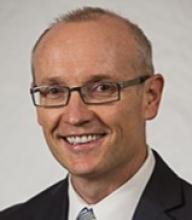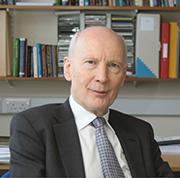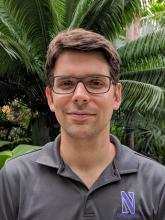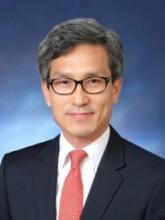Design and impact of underground construction in cities – improving on the past?
Alison Norrish

Alison Norrish is a Director and Fellow of Arup and leads the design of major infrastructure projects in the rail, road and aviation sectors specializing in underground and tunnelling projects in the UK and Asia. She has a reputation for technical strength and challenge and her expertise extends from concept to detailed design through to management of construction.
Alison is a Fellow of the ICE and has recently been appointed Chair of their Advisory Board for Structures and Geotechnics. She is currently chair of the Thames Tideway Tunnels Technical Expert Panel, a member of the Greater London Authority’s Infrastructure Advisory Group and a commissioned Major of the Engineering and Logistics Staff Corp of the British Army.
Using experience from projects over the past 25 years, the lecture will set out the increasing physical and technical challenges of tunnelling and underground construction in urban city environments. It will investigate whether the use of new models and computing power is improving our ability to design the structures retaining ground and water pressures, and to predict associated ground movements and impacts in the field.
The paper will consider the influence of increasingly prescriptive rules and codes in a marketplace that is highly competitive and time/cost constrained on designers operating with increasing risk of contractual implications rather than incentives to adopt innovative and lean designs. It will highlight the swing from Ultimate Limit State to Serviceability Limit State-governed design and whether the resulting designs offer genuine improvements in performance and durability.
Utilization of Information Technology for Underground Excavation Design – from Fundamentals to Practical Issues
Professor Chungsik Yoo
Professor Chungsik Yoo is currently Professor of Civil and Construction Systems Engineering at Sungkyunkwan University (SKKU) in Korea. He is the President of the International Geosynthetics Society (IGS) and the Vice-Chair of TC204, a technical committee on “Underground Construction in Soft Ground”, of International Society for Soil Mechanics and Geotechnical Engineering (ISSMGE). Professor Yoo is active in the international tunnelling community and has served as an Executive Council member of International Tunnelling and Underground Association (ITA). He obtained his MSc and Ph.D. degrees in Civil Engineering from the Pennsylvania State University in 1989 and 1993, respectively. After briefly working at Mueser Rutledge Consulting Engineers in USA as a Geotechnical Engineer, he returned to Korea and joined SKKU as Assistant Professor in 1994. Since then, Professor Yoo is continuing to serve as a professor at SKKU, and has served as Chair Professor of School of Civil and Architectural Engineering from 2014 to 2016 and as Vice Dean of College of Engineering from 2017 to 2018. Professor Yoo has co-authored over 400 technical papers, including SCI journal papers and conference papers, in geotechnical engineering and tunnelling based on laboratory testing, numerical modeling, and field testing. He was a recipient of 2010 IGS Award from the International Geosynthetic Society (IGS). Professor Yoo also received many awards from the Korean Civil Engineering Society, Korean Geotechnical Society, Korean Tunnelling and Underground Space Association, and Korean Geosynthetics Society including the Best Scientific and Engineering Paper Award from the Korean Federation of Science and Technology Societies in 2014. Currently, he is an Associate Editor of numerous international journals such as Geotextiles and Geomembranes, Geosynthetics International, Tunnelling and Underground Space Technology, and Soils and Foundations. He is also an Editorial Board Member of Geosynthetics International and Computers and Geotechnics. Professor Yoo has delivered many keynote lectures on topics related to geosynthetics and tunnelling at numerous international events including ISRM 2015, Eurogeo 6, Geosynthetics Asia 2016, IS-Sao Paulo 2017, Tunnelling Asia 2017, GeoMEAST 2017, GeoPERU 2017, among others.
Abstract: Information technology (IT) is the area of managing technology and spans a wide variety of areas that include, but are not limited to, things such as computer software, information systems, computer hardware, programming languages, and data structures and database design, visualization and image reasoning. In fact, many techniques that are being used in the field of civil engineering fall into IT, such as numerical methods, geographic information system (GIS) and remote sensing using satellite images (InSAR), artificial intelligence, visualization and image processing, and risk assessment, etc. In underground construction engineering fields, these technologies have allowed us to expedite routine engineering design and analysis procedures. In this presentation, research and development in the integration of IT into routine underground design/analysis at Sungkyunkwan University are introduced. For example, an integrated technique that utilizes GIS and artificial neural network (ANN) for tunnelling risk assessment and design is presented, which adopts generalized ANNs within a GIS platform. Also introduced are ANN-based design concept for TBM tunnel segment lining as well as deep excavation. A technique that extends ANN to conventional tunnelling risk management is also presented. A novel feature of the developed approaches is an ability to expedite routine underground design/analysis procedures that otherwise require significant time and effort in performing required analyses for different design scenarios. Practical implications of the use of IT in geotechnical design are discussed in detail
Advancing Underground Project Risk Quantification using Spatial Geotechnical Uncertainty
Professor Mike Mooney

Mike Mooney is a Professor of Civil Engineering and the Grewcock Distinguished Chair of Underground Construction & Tunneling at Colorado School of Mines. He teaches courses in tunnel design and construction, support of excavations, infrastructure systems, instrumentation & monitoring, and intelligent geosystems. He also leads the four-day Tunneling short course held annually for industry professionals at Colorado School of Mines.
Mike received his MSc in Civil-Structural Engineering from the University of California-Irvine and a PhD in Civil-Geotechnical Engineering from Northwestern University. Mike currently leads the university-wide interdisciplinary Center for Underground that brings together students and faculty from civil, geological, mining, mechanical, geophysics, and computer science to advance research and education for underground works. He has authored/co-authored over 170 refereed journal papers, conference papers, and technical reports on instrumentation & monitoring, intelligent geoconstruction, and tunneling/heavy civil analysis, design and construction.
Mike is a registered Professional Engineer and has been engaged as a consultant on a number of tunneling projects in North America and internationally. Recent projects include tunnels in Michigan, New York/New Jersey, Virginia and Seattle, Washington. He has led and currently leads a number of research projects embedded at active project sites, e.g., ground deformation during Queens bored tunnels project in NYC, boulder detection on the Seattle Northlink tunnel construction project, probe hole monitoring for the NY Rondout bypass water tunnel, EPB soil conditioning on Seattle SR99 and Northlink tunnels, sequential excavation method inverse modeling for the Los Angeles Metro Regional Connector project, and artificial intelligence of TBM tunneling in Seattle, Los Angeles and Washington DC tunnels. In each case working with owners, contractors, designers, etc. In addition, Mike has been Principal Investigator on more than 30 research projects funded by the National Science Foundation, Air Force Research Lab, US Army Corps of Engineers, Federal Highway Agency, multiple Departments of Transportation, and numerous companies/corporations related to advanced sensing, construction technologies, infrastructure assessment, tunnel design and construction, and smart geosystems analysis/design.
Mike was the Scientific Committee Chair for the 2016 World Tunnels Congress held in San Francisco in April, 2016. He serves on the Executive Committee for the Underground Construction Association, and is a member of the Underground Engineering committee of the ASCE GeoInstitute and the International Tunneling Associations Committee on Education and Training.
Fujita lecture
Developments in geotechnical aspects of underground construction
Professor Lord Robert Mair CBE FREng FICE FRS

Robert Mair is Emeritus Professor of Civil Engineering and Director of Research at Cambridge University, where until recently he was Head of Civil Engineering. He was Master of Jesus College 2001-2011 and Senior Vice-President of the Royal Academy of Engineering 2008-2011. He was President of the Institution of Civil Engineers 2017-18. Prior to his appointment to a Chair at Cambridge in 1998, he worked in industry for 27 years. In 1983 he was one of the founders of the Geotechnical Consulting Group, an international consulting company based in London. He has been responsible for numerous major engineering projects world-wide, is an international research leader in geotechnical engineering and is a world expert on underground construction in soft ground.
His principal research interests are in the development of innovative engineering solutions for the design and construction of underground space in complex ground conditions, particularly in urban environments. He is Head of the Centre on Smart Infrastructure and Construction (CSIC) at Cambridge, funded by EPSRC, Innovate UK and industry to a total value of £22m. CSIC develops new technologies for streamlining construction and for condition assessment and monitoring of ageing infrastructure, with a focus on the development of wireless sensor networks and new fibre optic sensing technology. CSIC has around 50 industry partners and has deployed innovative sensor technologies on around 100 different sites.
He is Chairman of the Science Advisory Council of the Department for Transport. He was elected a Fellow of the Royal Academy of Engineering in 1992, the Royal Society in 2007 and Foreign Member of the US National Academy of Engineering in 2019. He was appointed an independent crossbencher in the House of Lords in 2015 and is a member of the House of Lords Select Committee on Science and Technology.
Bright Spark Lecture
Inspiring Interest in Geotechnics
James P. Hambleton

Originally from rural Wisconsin, Jim Hambleton was educated at the University of Minnesota, where he completed three degrees (B.C.E., M.S., and Ph.D.) in Civil Engineering. Between his undergraduate and graduate studies, he completed an internship at Barr Engineering Company in Minneapolis. After receiving his Ph.D. in 2010, he joined the Centre for Geotechnical and Materials Modelling at The University of Newcastle, Australia, first as a Post-doctoral Research Associate and then as a Senior Lecturer. In the latter role, he was a collaborator within the Australian Research Council (ARC) Centre of Excellence for Geotechnical Science and Engineering, a joint initiative between The University of Newcastle, The University of Western Australia, the University of Wollongong, and various industry partners. He joined the Department of Civil and Environmental Engineering at Northwestern University as an Assistant Professor in October 2016. He was named Louis Berger Junior Professor in September 2020, and he is the recipient of the ARC Discovery Early Career Researcher Award, NSF CAREER Award, ASCE Casagrande Award, and various other research and teaching awards. He is currently Chair of the ASCE Geo-Institute Chicago Chapter.
This presentation describes insights gleaned from teaching a course exploring how machines and organisms interact with earth materials. Originally intended for postgraduates only, the course has evolved to accommodate students at all levels and to fulfill multiple purposes. These include (1) providing a gateway for students considering civil engineering, (2) providing an early and engaging introduction to the subdiscipline of geotechnics, (3) connecting problems in terramechanics (defined broadly as the field dealing with the interaction between moving parts and earth materials) to other areas of geotechnics, and (4) assessing future directions for research and development. Course activities include class discussions, student presentations on self-selected topics, invited lectures from industry partners, and prediction contests for “hands-on” laboratory demonstrations completed using the six-axis robotic arm and soil test beds available in the Soil-Machine Interaction Laboratory (SMI Lab) at Northwestern University. The course exposes students to general-purpose analysis tools, such as dimensional analysis and cavity expansion theory, and to advanced experimental setups as a way of attracting sustained interest from talented students. Experiences, assessments, and potential enhancements are discussed in detail.

